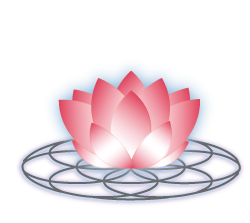Our lives are generally really busy, juggling work, family, and a never-ending to-do list. With all of these different balls in the air, it’s easy to forget to smell the roses and take time for yourself. However, what if I told you that practicing gratefulness can help to improve your mood, and decrease your stress? What if gratefulness or gratitude was the secret tool you’ve been looking for? Today we are going to dive into the everyday magic of gratitude. This is not just a fluffy concept - there is research to back this up, and my goal is to teach you how gratefulness can transform your mental well-being by the end of this blog.
Individuals who practice gratefulness are more prone to be able to appreciate the smaller things in life. Their ‘threshold’ for being grateful is lower, meaning that they can appreciate simple pleasures stronger than someone who doesn’t practice regularly. This is because the neuropathway in their brain for gratefulness has been traveled so regularly, that the impulse to get to the destination ‘grateful’ is very easy and quick. Watkins, el al defined simple pleasures as “pleasures in life that are readily available to most people.” They also found that grateful people have a sense of abundance, and don’t feel that they’ve been deprived, and tend to be happier.
Scientists at the Institute of HeartMath (McCraty & Childre, 2004) discovered that when you feel grateful, your heart rhythms sync up in harmony. This means that gratefulness rewires your brain for happiness and helps you keep the effects of stress at bay. This was supported by researchers Emmons and McCullough (2003), who found that people who practice gratitude report fewer stress-induced health problems.
Yes, life can be difficult, and it won’t always be sunny, but individuals who practiced gratefulness regularly were able to find silver linings in their negative situations based on Watkins et al. (2006) in "Behavior Research and Therapy." Watkins, el al also found that those who implemented gratefulness regularly started to have more positive emotions like hope and happiness. This hope can help you keep going in a difficult situation until the rain stops, the clouds part and the rainbow appears at the end. This is also how gratefulness can help make you more resilient, and be able to bounce back after difficult times.
Lastly, gratefulness strengthens and supports your social relationships, and makes them stronger. Individuals who practice gratefulness regularly accept that their lives are better with the contribution of different people in their lives - and they are able to acknowledge them. They show their appreciation however it works in that relationship, whether it’s by giving a hand when their friend needs help, telling them how much they love and appreciate them, giving them a small gift because that gift made them think of their friend, etc. It’s like a positive spiral of ‘good emotions,’ which in we can definitely have more of in our society.
So as you have read, gratefulness has a number of different effects on our mental well-being. It’s not necessarily the grand things that make our lives enjoyable. It’s appreciating the simple joys in life - because if you can, you can definitely enjoy the grander things in life. This is due to the strong neuropathway of gratefulness in that person practicing gratitude regularly.
So what are you grateful for today?
~Dr. Charmagne
References:
Watkins PC, el al. (2003). Gratitude and Happiness: Development of a Mesure of Gratitude, and Relationships with Subjective Well-Being. Social Behavior and Personality: An International Journal, 31(5), 431-451.
McCraty, R., & Childre, D. (2004). The Grateful Heart: The Psychophysiology of Appreciation. Institute of HeartMath.
Emmons, R. A., & McCullough, M. E. (2003). Counting blessings versus burdens: An experimental investigation of gratitude and subjective well-being in daily life. Journal of Personality and Social Psychology, 84(2), 377-389.
Wood, A. M., Joseph, S., & Maltby, J. (2013). Gratitude predicts psychological well-being above the Big Five facets. Personality and Individual Differences, 54(3), 294-298.
Seligman, M. E., Steen, T. A., Park, N., & Peterson, C. (2005). Positive psychology progress: Empirical validation of interventions. American Psychologist, 60(5), 410-421.
Lambert, N. M., Graham, S. M., Fincham, F. D., & Stillman, T. F. (2009). A preliminary study of the relationship between gratitude and perceived social support and mental health. Journal of Social and Clinical Psychology, 28(2), 163-173.


